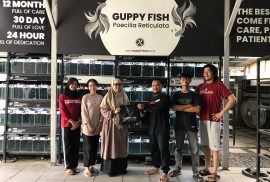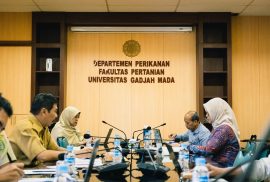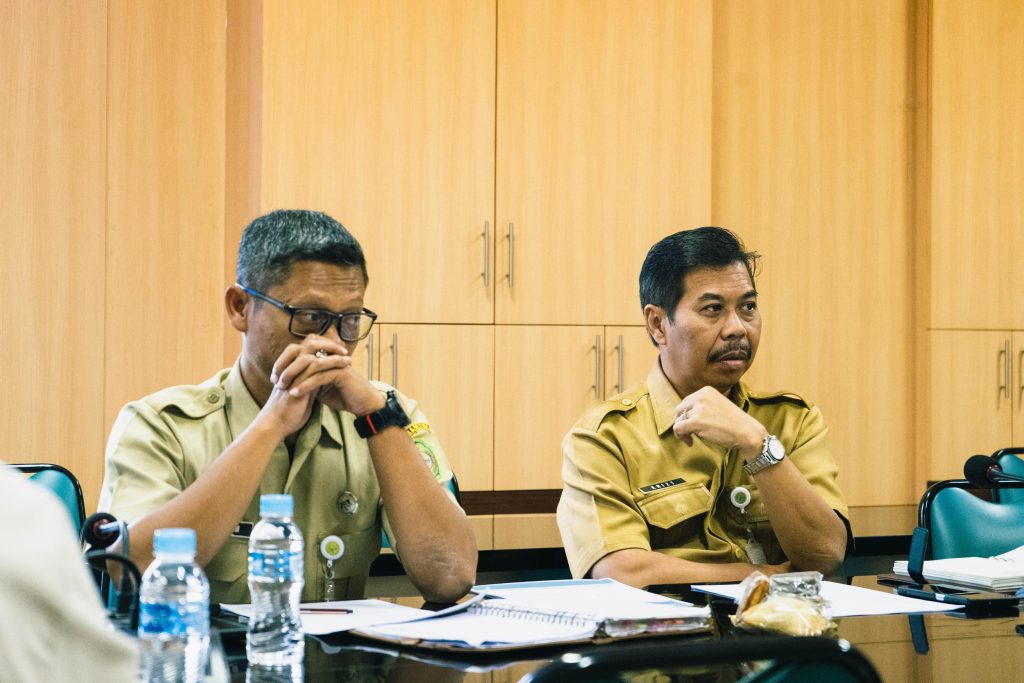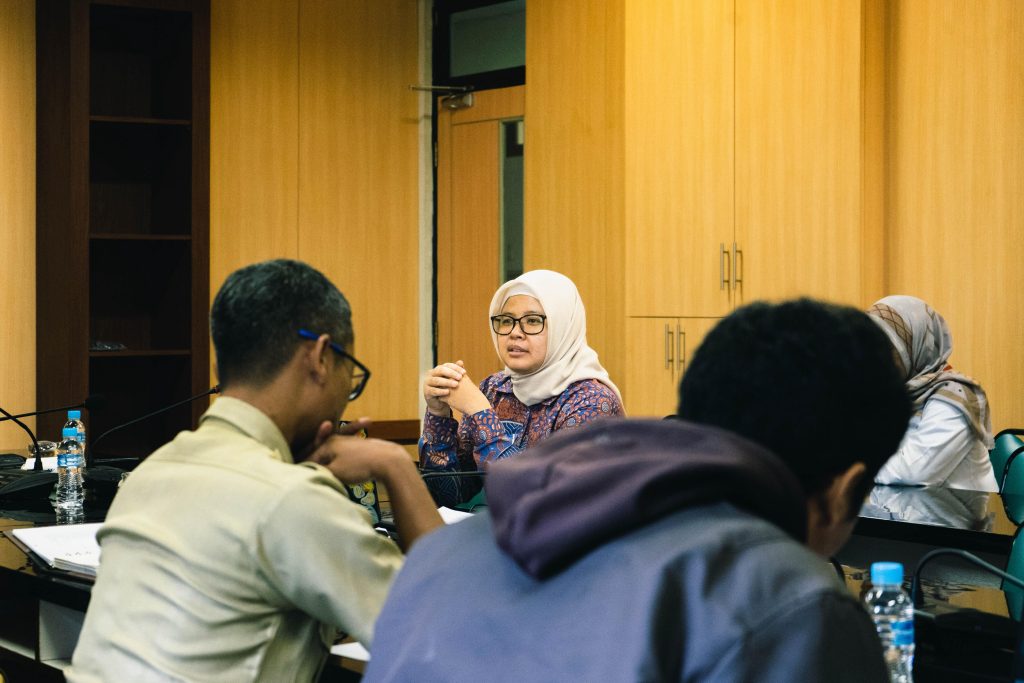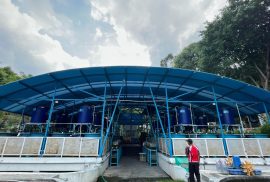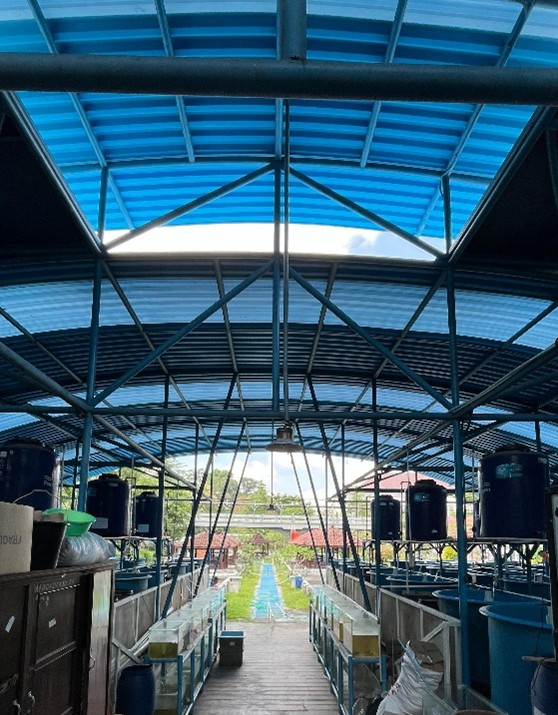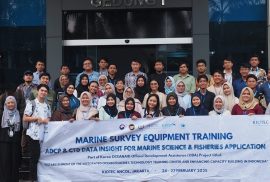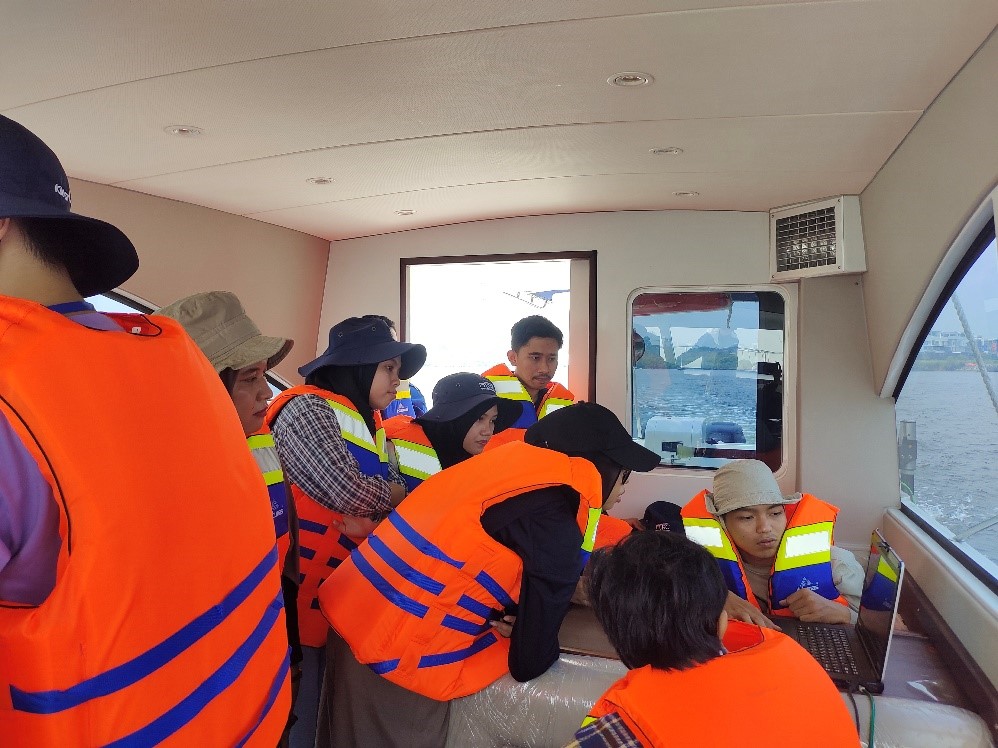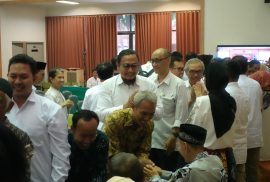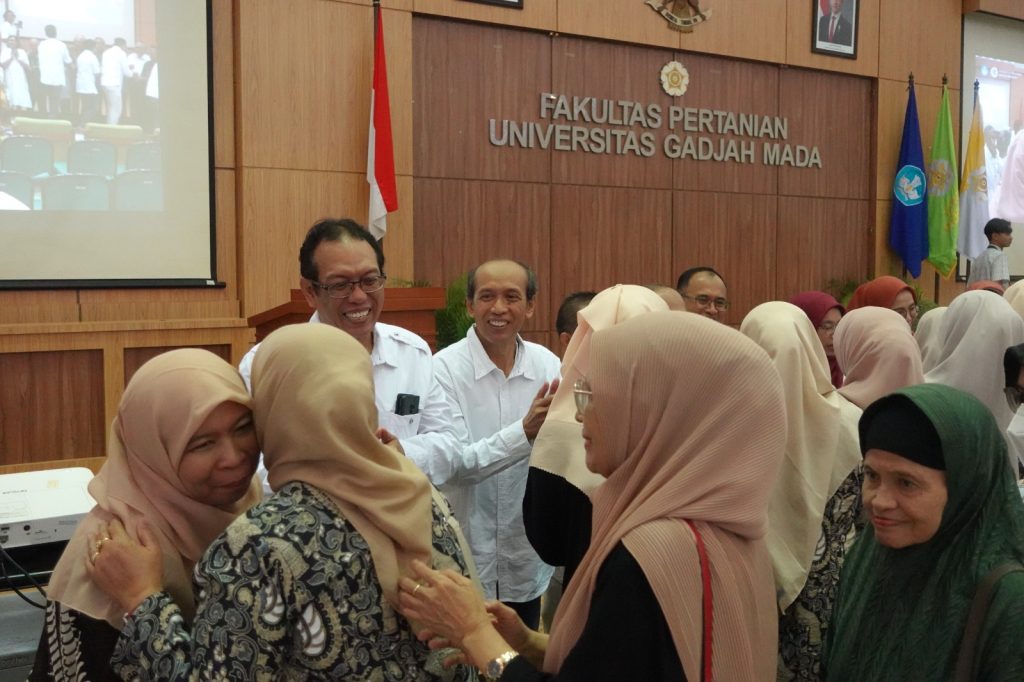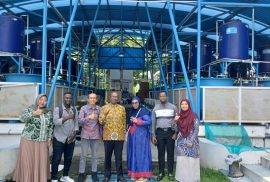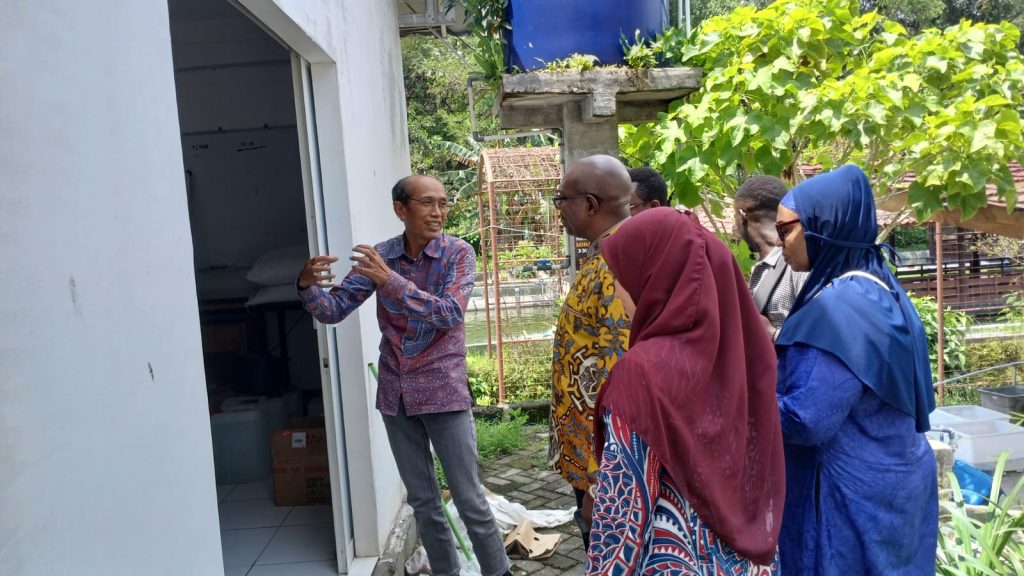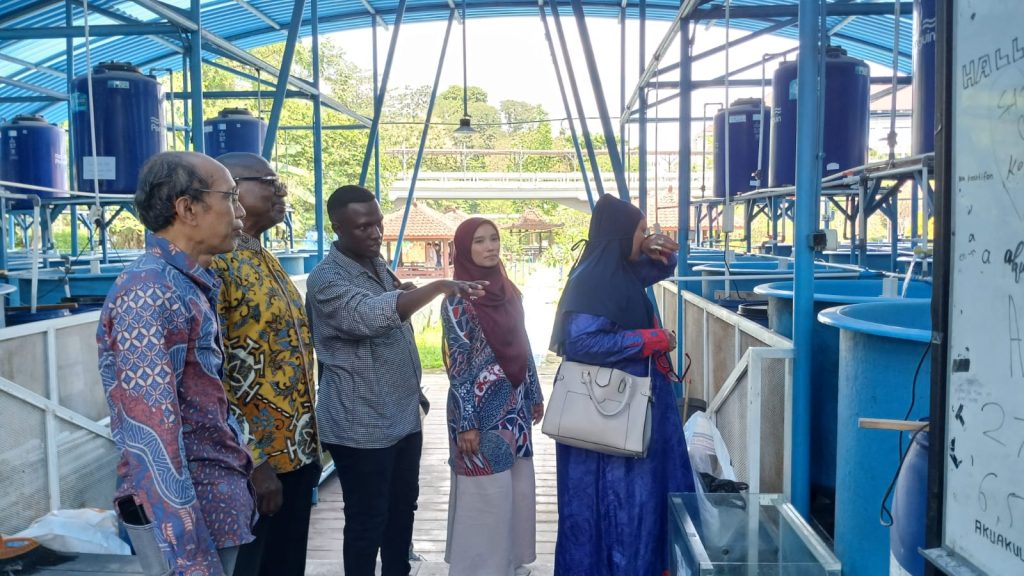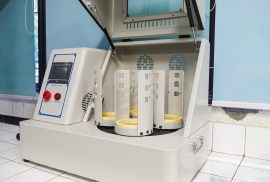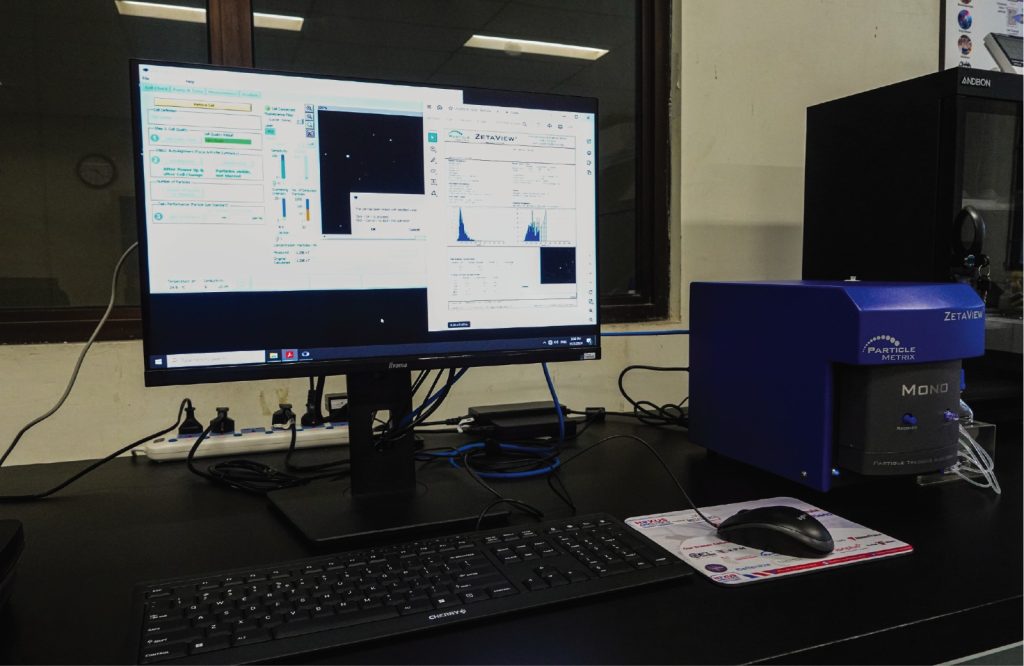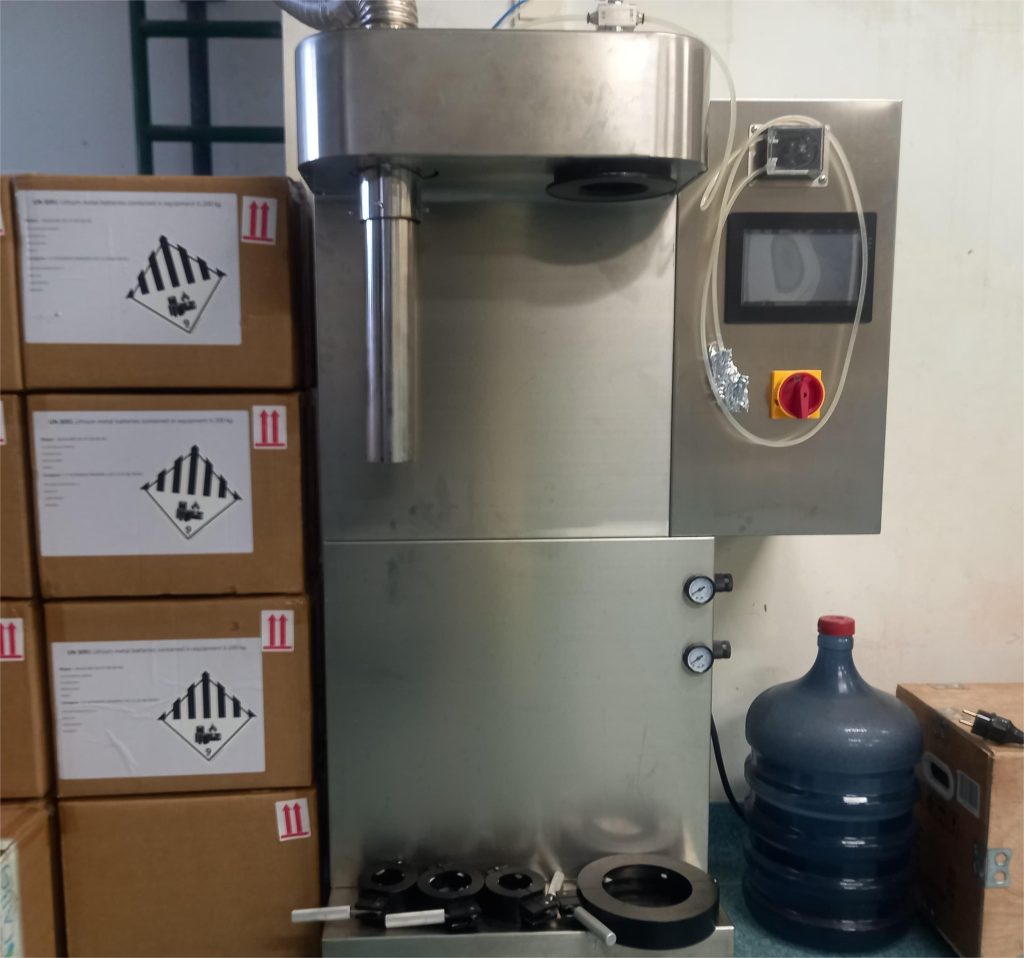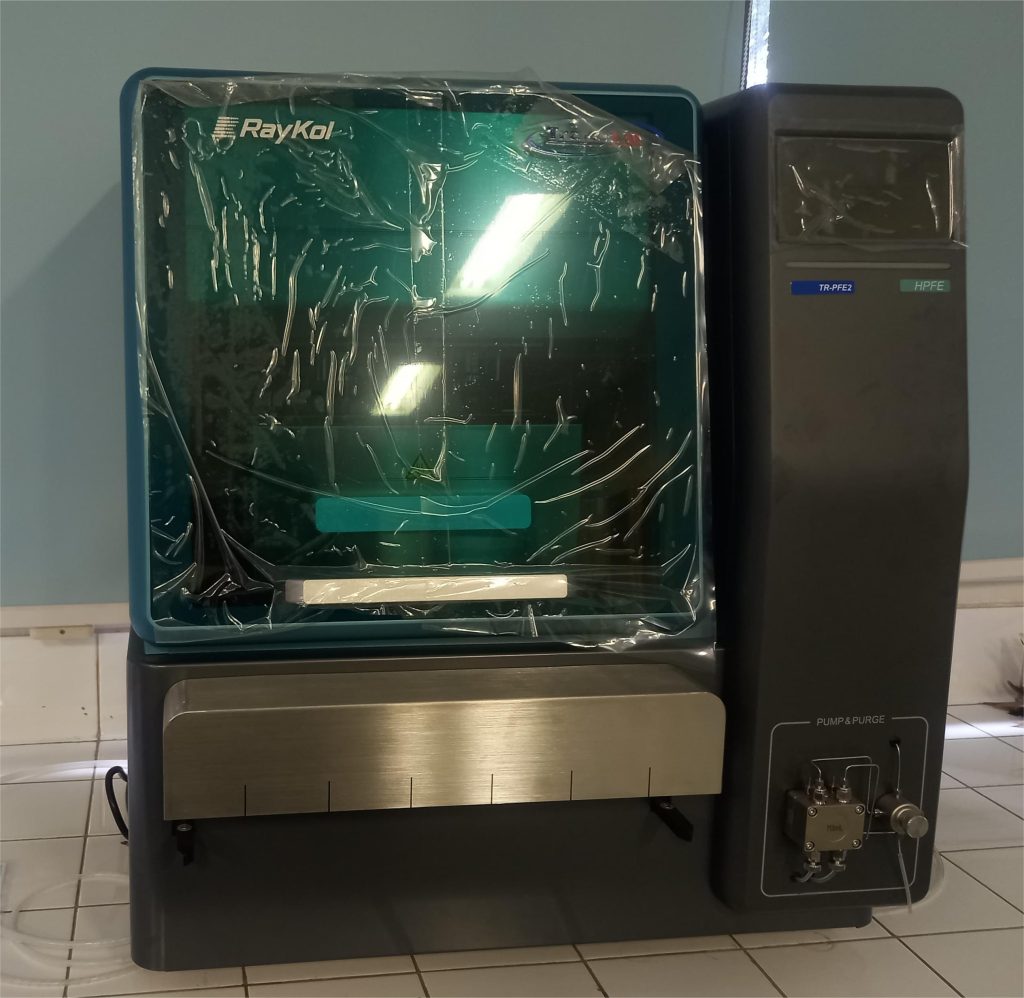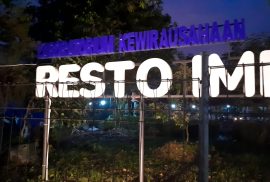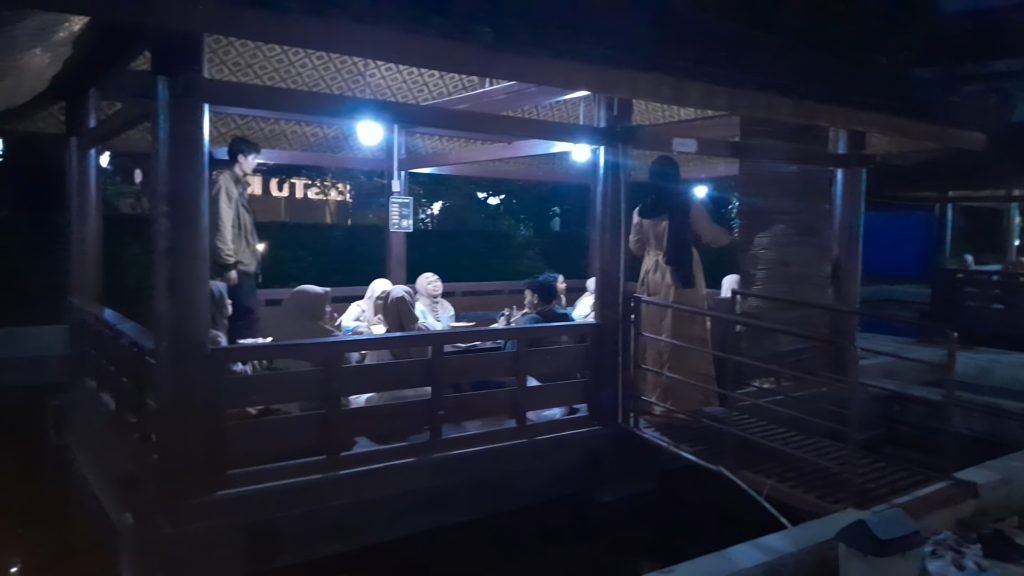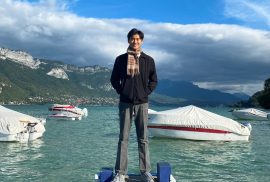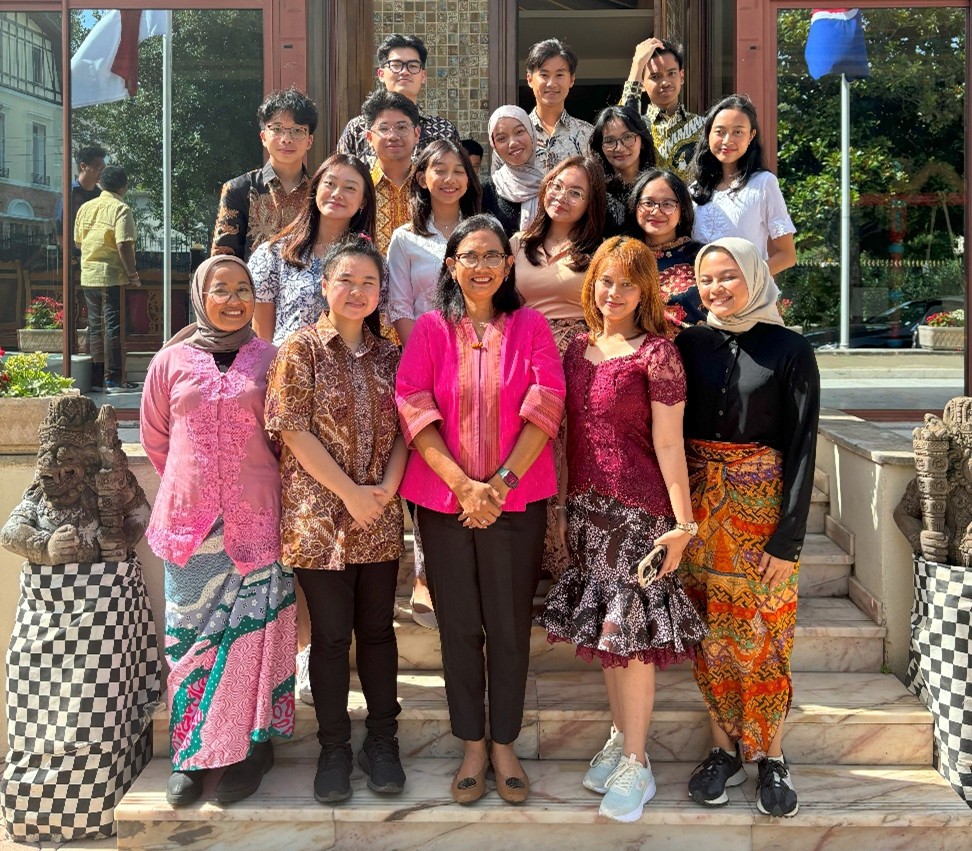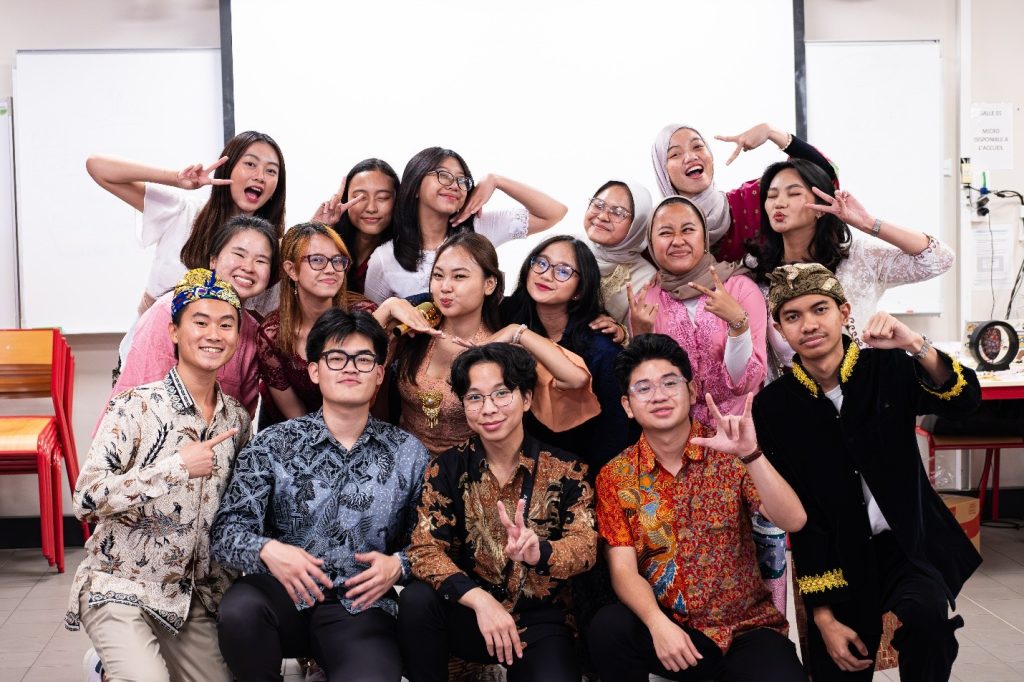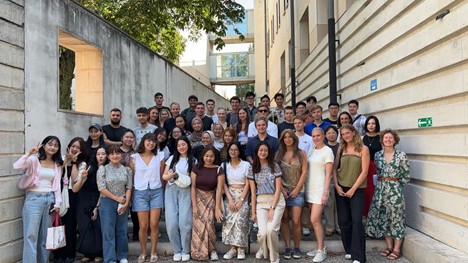UGM Fisheries Students Learn Ornamental Fish Aquaculture Through MBKM Program at Swasti Farm
News Wednesday, 30 April 2025
Merdeka Belajar Kampus Merdeka (MBKM) Program organized by the Aquaculture Study Program, Department of Fisheries, Faculty of Agriculture, Universitas Gadjah Mada (UGM), provides students with the opportunity to be directly involved in the fisheries industry. One of the program’s implementations is an internship activity at Swasti Farm, which focuses on ornamental fish aquaculture, specifically guppy fish. This internship offers students practical experience not only limited to theoretical learning but also technical skills through fieldwork. The program is supervised by Dr. Senny Helmiati, S.Pi., M.Sc., who acts as the field academic advisor to ensure the learning process proceeds effectively. During the internship, students are involved in various operational aspects at Swasti Farm, ranging from larval care of guppy fish to sales processes, as well as supporting marketing and packaging activities.
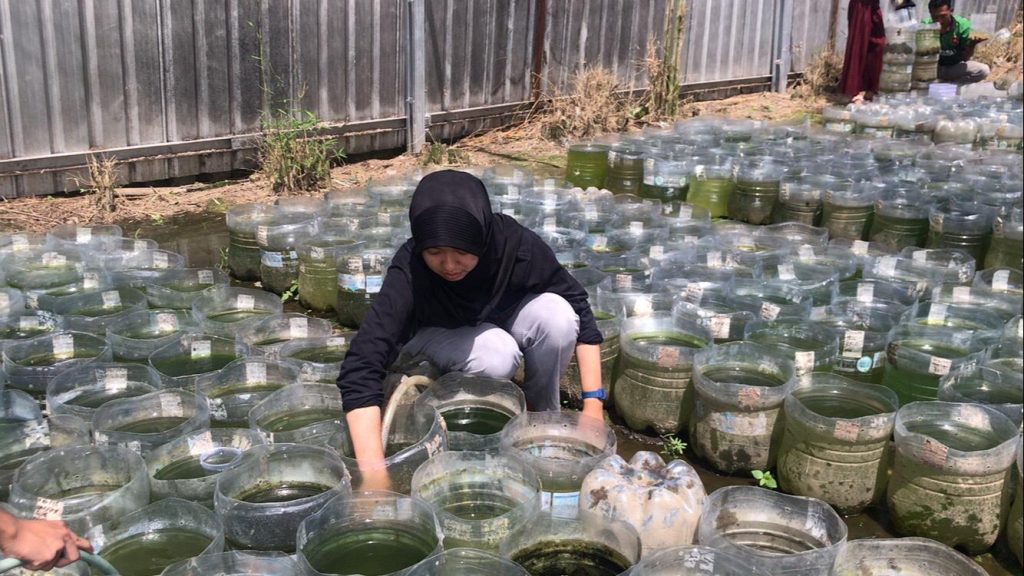
According to Alya Putri Mezzaluna, one of the students participating in this internship program, the experience gained is highly relevant to the courses previously studied on campus, such as Basic Genetics, Basic Aquaculture, and Hatchery Technology. At Swasti Farm, students are given the opportunity to perform guppy fish selection and crossbreeding, with the aim of improving genetics or enhancing fish phenotypes. Other courses converted during this internship include Hatchery Management, Ornamental Fish Cultivation, and Aquaculture Product Marketing. This field experience provides a more applicable and comprehensive understanding, enabling students not only to gain theoretical knowledge but also to become directly involved in solving real-world problems in the fisheries industry.
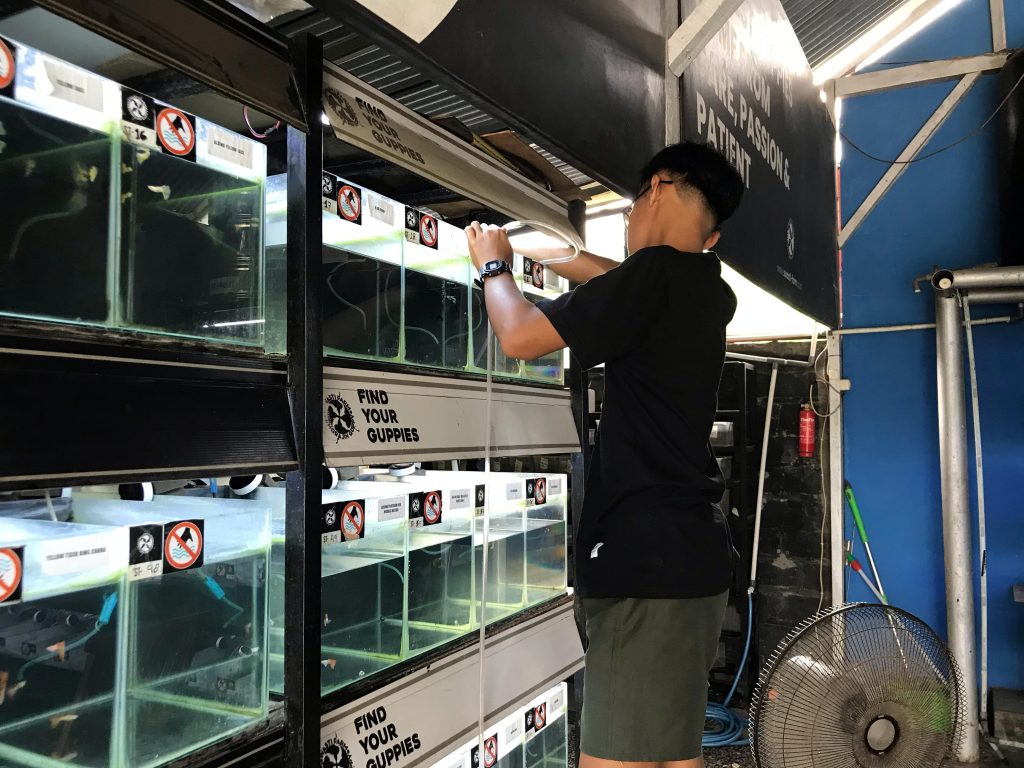
Luna also expressed positive impressions of the internship at Swasti Farm. She appreciated the supportive working environment with friendly colleagues, which made the internship run smoothly and enthusiastically. Luna hopes that the MBKM program will continue and be further developed, as it is highly beneficial for students to experience the real dynamics of the professional world, especially in aquaculture, which has a high degree of technical and operational complexity. She also hopes that the MBKM program will receive greater support from various stakeholders so that students can continue to broaden their insights, build networks, and gain valuable experiences beyond the formal academic setting. This program aligns with the goals of the Sustainable Development Goals (SDGs), namely Quality Education (SDG 4), Decent Work and Economic Growth (SDG 8), and Life Below Water (SDG 14), which support the advancement of the national aquaculture sector.
Author: Fathurrahman Kafi
Editor: Nahla Alfiatunnisa, S.Pi.

